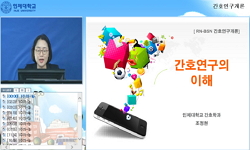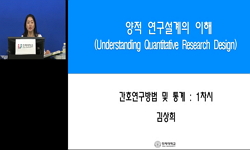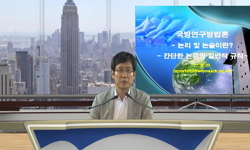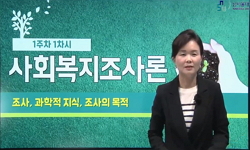This study attempted to investigate how critical pedagogy could be incorporated into regular primary English classes. The study was conducted in qualitative research which was analyzed by a constant comparative approach with triangulation. The researc...
http://chineseinput.net/에서 pinyin(병음)방식으로 중국어를 변환할 수 있습니다.
변환된 중국어를 복사하여 사용하시면 됩니다.
- 中文 을 입력하시려면 zhongwen을 입력하시고 space를누르시면됩니다.
- 北京 을 입력하시려면 beijing을 입력하시고 space를 누르시면 됩니다.
부가정보
다국어 초록 (Multilingual Abstract)
This study attempted to investigate how critical pedagogy could be incorporated into regular primary English classes. The study was conducted in qualitative research which was analyzed by a constant comparative approach with triangulation. The research questions for the study were as follows: 1) How do primary students with multi-level English proficiency raise their critical awareness in a regular English class? 2) How do they reflect their ‘language identity’ in a written task? This study presented the written accounts of 38 participants of 6th graders in a simple questionnaire and 4 of them for a reading-based writing task and the self reflective note of a teacher-researcher. The main findings of the study suggested that primary students could establish their critical awareness when there were appropriate scaffolding activities sufficiently provided concerning marginalized learners’ language ability. For the second research question, they showed the conflict process of multiple-linguistic identity and mono-linguistic identity which was closely relevant to national identity in order to shape a new group of identities in the global era.
참고문헌 (Reference)
1 이은연, "초‧중등 대상 내용기반 영어교육의 동향 분석" 한국영어학회 14 (14): 93-123, 2014
2 권선희, "수준별 과학-영어 내용중심 수업에서의 초등학생 영어의사소통능력향상에 대한 연구" 팬코리아영어교육학회 24 (24): 239-256, 2012
3 한종임, "비판적 사고력 신장을 위한 테크놀로지 기반 영어 쓰기 학습 모형 연구" 한국외국어교육학회 19 (19): 127-150, 2012
4 I. Shor, "When Students have Power : Negotiating Authority in a Critical Pedagogy" University of Chicago Press 1996
5 Virginia Braun, "Using thematic analysis in psychology" Informa UK Limited 3 (3): 77-101, 2006
6 B. L. Moorhouse, "Using Critical Pedagogies with Young EFL Learners in a Hong Kong primary school" 2 (2): 79-90, 2014
7 Alastair Pennycook, "The Concept of Method, Interested Knowledge, and the Politics of Language Teaching" JSTOR 23 (23): 589-618, 1989
8 Elsa Roberts Auerbach, "Reexamining English Only in the ESL Classroom" JSTOR 27 (27): 9-32, 1993
9 M. Q. Patton, "Qualitative evaluation and research methods" Sage 1990
10 Averil Coxhead, "Preparing writing teachers to teach the vocabulary and grammar of academic prose" Elsevier BV 16 (16): 129-147, 2007
1 이은연, "초‧중등 대상 내용기반 영어교육의 동향 분석" 한국영어학회 14 (14): 93-123, 2014
2 권선희, "수준별 과학-영어 내용중심 수업에서의 초등학생 영어의사소통능력향상에 대한 연구" 팬코리아영어교육학회 24 (24): 239-256, 2012
3 한종임, "비판적 사고력 신장을 위한 테크놀로지 기반 영어 쓰기 학습 모형 연구" 한국외국어교육학회 19 (19): 127-150, 2012
4 I. Shor, "When Students have Power : Negotiating Authority in a Critical Pedagogy" University of Chicago Press 1996
5 Virginia Braun, "Using thematic analysis in psychology" Informa UK Limited 3 (3): 77-101, 2006
6 B. L. Moorhouse, "Using Critical Pedagogies with Young EFL Learners in a Hong Kong primary school" 2 (2): 79-90, 2014
7 Alastair Pennycook, "The Concept of Method, Interested Knowledge, and the Politics of Language Teaching" JSTOR 23 (23): 589-618, 1989
8 Elsa Roberts Auerbach, "Reexamining English Only in the ESL Classroom" JSTOR 27 (27): 9-32, 1993
9 M. Q. Patton, "Qualitative evaluation and research methods" Sage 1990
10 Averil Coxhead, "Preparing writing teachers to teach the vocabulary and grammar of academic prose" Elsevier BV 16 (16): 129-147, 2007
11 P. Freire, "Pedagogy of the Oppressed" Continuum 2000
12 F. T. Lyman, "Mainstreaming Digest" University of Maryland College of Education 1981
13 Bonny Norton, "Language, Identity, and the Ownership of English" JSTOR 31 (31): 409-429, 1997
14 Bonny Norton, "Identity, language learning, and social change" Cambridge University Press (CUP) 44 (44): 412-446, 2011
15 C. Weedon, "Feminist Practice and post structuralist theory" Blackwell 1987
16 Hyunjung Shin, "Exploring the Possibilities for EFL Critical Pedagogy in Korea: A Two-Part Case Study" Informa UK Limited 2 (2): 113-136, 2005
17 A. Pennycook, "Encyclopedia of Language and Education" Springer 169-182, 2008
18 S. A. Ham, "Elementary school English 6" Chunjae Education 2018
19 Angel M. Y. Lin, "Doing-English-Lessons in the Reproduction or Transformation of Social Worlds?" JSTOR 33 (33): 393-412, 1999
20 A. Pennycook, "Critical applied linguistics: A critical introduction" Routledge 2001
21 A. Pennycook, "Critical applied linguistics in the handbook of applied linguistics" Blackwell 2006
22 M. Smith, "Critical Pedagogy : An Overview" 86 (86): 332-334, 2010
23 A. Hirvela, "Connecting reading and writing in second language writing instruction" University of Michigan Press 2004
24 Stella Kong, "Cognitive content engagement in content-based language teaching" SAGE Publications 15 (15): 307-324, 2011
25 Rosane Rocha Pessoa, "Challenges in Critical Language Teaching" Wiley 46 (46): 753-776, 2012
26 M. J. Wallace, "Action research for language teachers" Cambridge University Press 1998
동일학술지(권/호) 다른 논문
-
학습 참여 촉진요인에 대한 대학생들의 인식 연구: 플립 러닝 영어 수업에 정서를 고려하기
- 제주대학교 교육과학연구소
- 김병선
- 2020
- KCI등재
-
- 제주대학교 교육과학연구소
- 박지선
- 2020
- KCI등재
-
2015 개정 교육과정에 따른 고등학교 생명과학Ⅰ교과서에 포함된 SDGs 세부 목표 분석
- 제주대학교 교육과학연구소
- 배경석
- 2020
- KCI등재
-
학생선수들의 완벽주의 성향과 운동만족 간의 관계: 긍정심리자본의 매개효과 검증
- 제주대학교 교육과학연구소
- 오영택
- 2020
- KCI등재





 KCI
KCI







